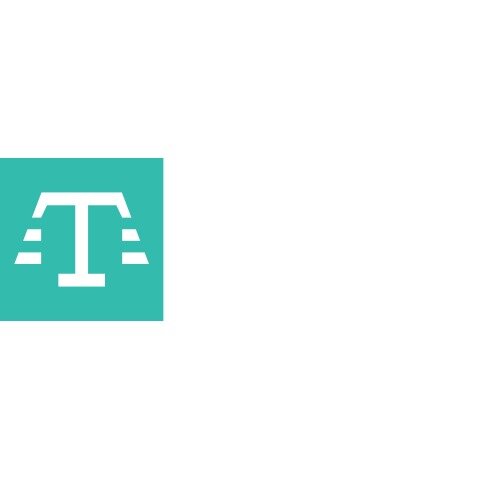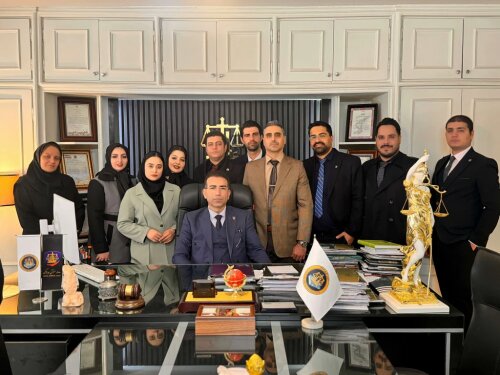Best Sexual Harassment Lawyers in Iran
Share your needs with us, get contacted by law firms.
Free. Takes 2 min.
Or refine your search by selecting a city:
List of the best lawyers in Iran
About Sexual Harassment Law in Iran
Sexual harassment is a serious issue in Iran, and there are laws in place to protect individuals from such behavior. In Iran, sexual harassment is defined as any form of verbal, non-verbal, or physical conduct of a sexual nature that may affect the dignity of a person. It is important to understand the legal implications of sexual harassment in Iran to protect your rights.
Why You May Need a Lawyer
There are many situations where you may need a lawyer to help you with sexual harassment cases in Iran. Some common scenarios include filing a complaint with the appropriate authorities, seeking compensation for damages, or defending yourself against false accusations. A lawyer can provide you with valuable legal advice and representation to navigate the complex legal system in Iran.
Local Laws Overview
In Iran, sexual harassment is prohibited under the Islamic Penal Code. The law recognizes sexual harassment as a criminal offense and imposes penalties on offenders. It is important to note that the burden of proof lies with the victim in cases of sexual harassment in Iran. Victims must provide evidence to support their claims, and a lawyer can help gather the necessary evidence to strengthen their case.
Frequently Asked Questions
What actions constitute sexual harassment in Iran?
Any form of unwanted sexual advances, requests for sexual favors, or other verbal or physical conduct of a sexual nature can be considered sexual harassment in Iran.
What should I do if I have experienced sexual harassment in Iran?
If you have experienced sexual harassment in Iran, it is important to report the incident to the appropriate authorities and seek legal advice from a lawyer who specializes in sexual harassment cases.
What are the penalties for sexual harassment in Iran?
The penalties for sexual harassment in Iran vary depending on the severity of the offense. Offenders may face imprisonment, fines, or other forms of punishment as determined by the court.
Can I file a lawsuit for sexual harassment in Iran?
Yes, victims of sexual harassment in Iran have the right to file a lawsuit against their perpetrators. It is advisable to seek legal assistance from a qualified lawyer to guide you through the legal process.
Is there a time limit for filing a sexual harassment case in Iran?
There is no specific time limit for filing a sexual harassment case in Iran. However, it is recommended to report the incident and seek legal advice as soon as possible to preserve evidence and strengthen your case.
Can I remain anonymous when reporting sexual harassment in Iran?
Yes, victims of sexual harassment in Iran have the right to remain anonymous when reporting the incident to the authorities. However, providing your identity may help strengthen your case and aid in the investigation process.
How can a lawyer help me with a sexual harassment case in Iran?
A lawyer can provide legal advice, represent you in court, gather evidence to support your case, and negotiate on your behalf to seek justice and compensation for the damages you have suffered due to sexual harassment.
What are my rights as a victim of sexual harassment in Iran?
As a victim of sexual harassment in Iran, you have the right to seek legal redress, protection from further harassment, compensation for damages, and confidentiality throughout the legal process.
Are there support services available for victims of sexual harassment in Iran?
Yes, there are organizations and support services available in Iran to assist victims of sexual harassment. These organizations offer counseling, legal advice, and other forms of support to help victims cope with the trauma of harassment.
How can I prevent sexual harassment in Iran?
To prevent sexual harassment in Iran, it is important to raise awareness about the issue, educate people about the legal consequences of such behavior, promote gender equality, and advocate for the rights of victims of harassment.
Additional Resources
If you are in need of legal advice or support related to sexual harassment in Iran, you can contact the Iranian Bar Association, the Center for Women's Legal Research and Education, or the Iranian Judiciary for assistance.
Next Steps
If you have experienced sexual harassment in Iran or need legal advice on this matter, it is important to seek assistance from a qualified lawyer who specializes in sexual harassment cases. Contact a lawyer as soon as possible to discuss your options and take the necessary steps to protect your rights and seek justice.
Lawzana helps you find the best lawyers and law firms in Iran through a curated and pre-screened list of qualified legal professionals. Our platform offers rankings and detailed profiles of attorneys and law firms, allowing you to compare based on practice areas, including Sexual Harassment, experience, and client feedback.
Each profile includes a description of the firm's areas of practice, client reviews, team members and partners, year of establishment, spoken languages, office locations, contact information, social media presence, and any published articles or resources. Most firms on our platform speak English and are experienced in both local and international legal matters.
Get a quote from top-rated law firms in Iran — quickly, securely, and without unnecessary hassle.
Disclaimer:
The information provided on this page is for general informational purposes only and does not constitute legal advice. While we strive to ensure the accuracy and relevance of the content, legal information may change over time, and interpretations of the law can vary. You should always consult with a qualified legal professional for advice specific to your situation.
We disclaim all liability for actions taken or not taken based on the content of this page. If you believe any information is incorrect or outdated, please contact us, and we will review and update it where appropriate.
Browse sexual harassment law firms by city in Iran
Refine your search by selecting a city.
















